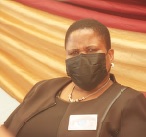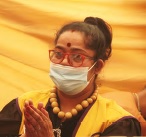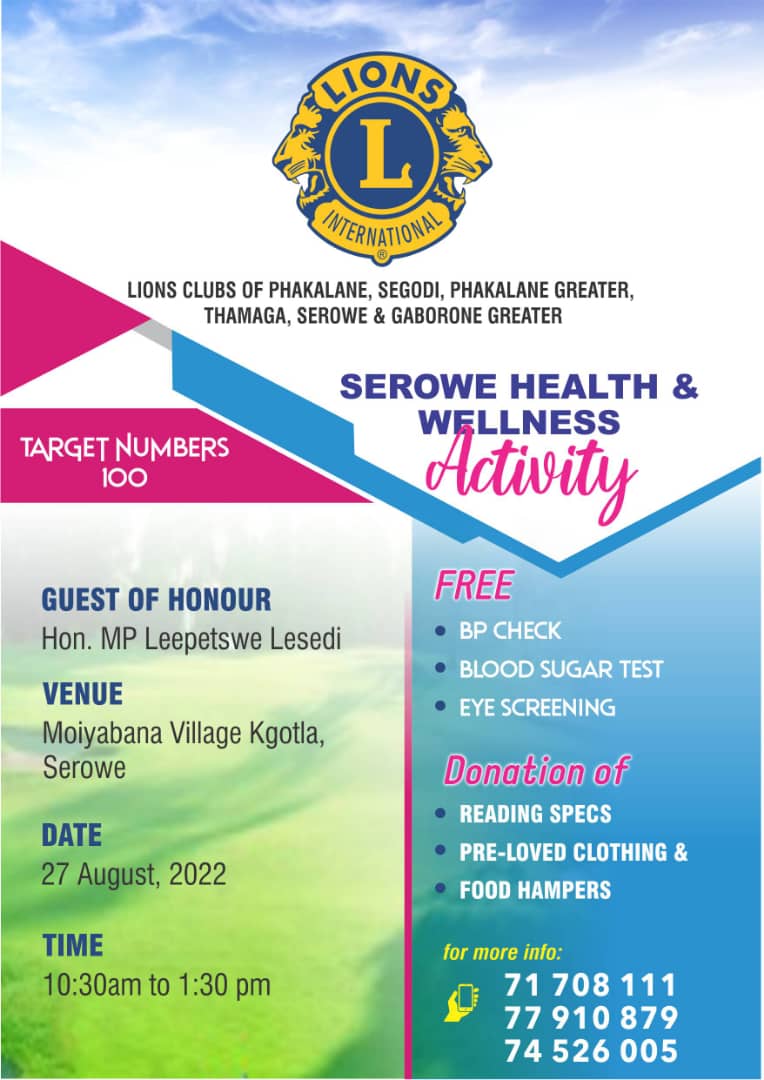The Following Article was published in The Patriot – 17th October 2021 authored by: Bakang Tiro ([email protected])
Public Health sector Botswana as overseen by Government is faced with a huge challenge to bridge the deficit of vital eye health care specialists among them optometrists and ophthalmologists.
- No enough Ophthalmologists, Optometrists
- Private sector attracts more eye care specialists
- MoHW to intensify recruitment of optometrists

The National Eye Health Coordinator at the Ministry of Health and Wellness (MoHW), Ms. Alice Lehasa revealed on Thursday that the public health sector grapples with acute shortage of Ophthalmologists and Optometrists respectively. Speaking at the commemoration of World Sight Day at Mochudi on Thursday, Ms. Lehasa said local private health sector has been faring well in terms of the eye health specialists compared to public one. She noted that government however is keen to ensure that it has sufficient number of experts
“However, we have realized an improvement with 4 to 5 of Batswana enrolling to train abroad in these areas. Most of ophthalmologists that practices in Botswana come from abroad and they are also more into private sector. It is very pleasing that our locals are now showing interest on to study in this field to be specialists in eye and vision care. Eye health is very critical,” said Ms. Lehasa.
She went on to say that government will open an intensified recruitment of optometrists to its fold. Furthermore, Lehasa said the ministry will embark on a recruitment of the optometrist to its fold.
Optometrists are healthcare professionals who provide primary vision care ranging from sight testing and correction to the diagnosis, treatment, and management of vision changes as well. On the other hand, an ophthalmologist is a medical or osteopathic doctor who specializes in eye and vision care. Ophthalmologists differ from optometrists and opticians in their levels of training and in what they can diagnose and treat the emerging eye health condition at early stages. Globally, research shows that at least 1 billion people have near or distance vision impairment that could be prevented or has yet to be addressed but shortage of experts hinders the progress.
Private Sector
In an interview on the side-lines of the commemoration, a private sector practicing optometrist Thanuja Panicker said the shortage of key eye health specialist in government is very higher. Panicker of “Eyelight Optomerist” Botswana and the Vice Chairperson (Acting Chairperson) of Botswana Optometrist Association there has been supporting government with free eye health expertise to bridge existing gap. She said that 80% of blindness can be cured when it is given urgent attention, adding that it is very important for the government to forge partnerships with private sector to exchange notes.

“Vision impairment affects people of all ages, with the majority being over the age of 50. unattended cataract and uncorrected refractive error are the leading causes of vision impairment. Other causes such as age-related macular degeneration, glaucoma, diabetic retinopathy, infectious diseases of the eye, and trauma, however, cannot be ignored and need to be addressed.
“Vision impairment affects people of all ages, with the majority being over the age of 50. An unattended cataract and uncorrected refractive error are the leading causes of vision impairment. Other causes such as age-related macular degeneration, glaucoma, diabetic retinopathy, infectious diseases of the eye, and trauma, however, cannot be ignored and need to be addressed. We are open as the private sector optometrists to work hand in hand with government to address the visual impairment,” she said. She has said private optometrists from Botswana Optometrists Association reaches out to assist through the community eye testing or screening initiatives so as to supports the health ministry.
Meanwhile, Chairman of Kgatleng District Council (KDC) Daniel Molokwe pleaded with health ministry to resuscitate the old Deborah Retief Memorial eye health clinic to speed up services. Molokwe said the hospital boast of relevant eye health equipment which has been not utilized. As a result, he said Kgatleng people end up being forced to travel to seek eye health services at Scottish Livingstone Hospital in Molepolole, insisting that sometimes it becomes a lengthy process. Molokwe has said the council has resolved to engage MoHW on reviving the old eye health clinic at the Deborah Retief Memorial Hospital hoping that their request is expedited promptly.





